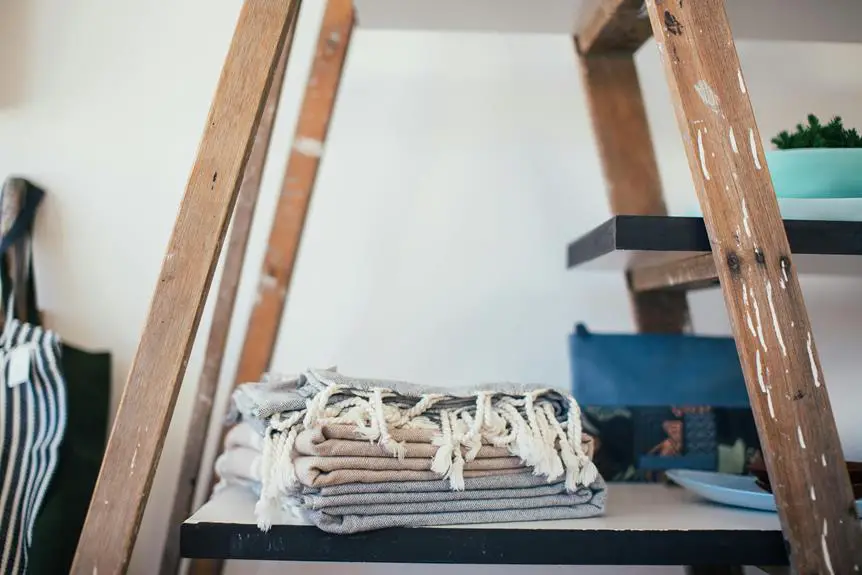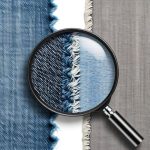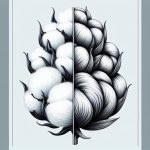When you're on the hunt for genuine Supima cotton, you need to be vigilant about a few key indicators. Start by looking for certification labels from the Supima Association; if you don't see 'Supima' with a trademark symbol, it's a red flag. Next, pay attention to the fabric's feel; authentic Supima should have a silky, plush texture, while imitations may feel coarse. But that's just the beginning—there are other aspects to consider that can help you distinguish the real deal from the impostors. What could these be?
Table of Contents
Understanding Supima Cotton
Supima cotton is a premium cotton variety known for its exceptional softness, strength, and color retention. When you touch Supima, you'll immediately notice its luxurious feel. It's grown exclusively in the United States, which means it comes from specific regions with ideal growing conditions. This exclusivity contributes to its superior quality compared to regular cotton.
One of the standout features of Supima is its long fibers, which enhance durability and prevent fraying. This means that when you invest in Supima cotton products, you're choosing items that not only feel great but also last longer. You'll find that colors remain vibrant wash after wash, maintaining their appeal over time.
Another important aspect is the environmentally friendly practices often associated with Supima cotton farming. Many growers focus on sustainable methods, which means you're making a more responsible choice for the planet when you opt for this fabric.
Checking for Certification Labels
When you're shopping for cotton products, look for certification labels that guarantee authenticity and ensure you're getting genuine Supima cotton. The Supima Association provides a certification label that's crucial for identifying authentic products. This label should display the “Supima” name prominently, and it confirms that the cotton is sourced from the United States and meets strict quality standards.
Additionally, check for the “Supima Cotton” logo, which signifies that the fabric is made from at least 50% Supima cotton. If you see a label claiming “100% cotton” without the Supima designation, it's likely not genuine. Some manufacturers may try to mislead you by using terms like “premium cotton” or “extra-long staple cotton.” Don't be fooled; these don't equal Supima.
Also, look for the trademark symbol (®) next to the Supima name. This indicates that the product is certified and legally recognized. If a product lacks these certifications, it's best to reconsider your purchase.
Evaluating Fabric Feel and Texture
The feel and texture of the fabric can reveal a lot about its authenticity, so trust your senses when evaluating cotton products. Supima cotton is known for its luxurious softness and smooth texture. When you touch the fabric, it should feel silky and plush, unlike lower-quality cotton, which might feel coarse or rough.
To help you differentiate between authentic Supima cotton and its impostors, consider the following characteristics:
| Authentic Supima Cotton | Fake Supima Cotton | Signs to Look For |
|---|---|---|
| Silky and smooth feel | Coarse or scratchy | Texture inconsistency |
| Lightweight yet durable | Heavier and stiff | Weight of the fabric |
| Breathable and soft | Lack of breathability | Temperature regulation |
As you evaluate the fabric, pay attention to how it drapes and how it feels against your skin. Authentic Supima cotton should feel comfortable and breathable, making it an excellent choice for clothing and linens. If it feels anything but luxurious, it's likely not the real deal. Trust your instincts and choose wisely!
Analyzing Weave and Stitching
Analyzing the weave and stitching of a fabric can provide crucial clues about its authenticity, helping you distinguish genuine Supima cotton from its counterfeit counterparts.
Start by examining the weave pattern. Authentic Supima cotton typically features a tight, consistent weave, which contributes to its strength and durability. If you notice loose threads or uneven weaving, it's likely not the real deal.
Next, pay attention to the stitching. Quality Supima cotton products will have neat, even stitching with no frayed edges. Look for double-stitched seams; this is a hallmark of well-made fabric. If the stitching appears sloppy or uneven, it's a strong indicator of inferior cotton.
Additionally, check the thread count. Genuine Supima cotton usually has a higher thread count, resulting in a softer and more luxurious feel. You can often find this information on the label, but if it's missing or seems suspicious, it's worth investigating further.
Observing Color and Finish
To ensure you're dealing with authentic Supima cotton, closely examine the color and finish, as genuine Supima often boasts vibrant hues and a natural sheen that counterfeit versions struggle to replicate.
When you look at the fabric, you'll notice that authentic Supima has a depth of color that's rich and even. If the fabric appears dull or unevenly colored, it's a strong indicator that it's not the real deal.
Additionally, take note of the finish. Real Supima cotton has a soft, luxurious feel that's hard to miss. It drapes beautifully and resists wrinkling, giving it an elegant appearance. If you run your fingers over the fabric and find it feels rough or too stiff, it might be a sign of inferior quality.
Also, be cautious of overly bright colors. Authentic Supima cotton tends to have a more natural, understated vibrancy, whereas fakes may use excessive dyes that can fade quickly.
Pay attention to these details; they can make all the difference. By observing the color and finish closely, you can confidently identify genuine Supima cotton and avoid disappointment.
Frequently Asked Questions
Can I Wash Supima Cotton Differently Than Regular Cotton?
You can wash Supima cotton similarly to regular cotton. Just use cold water and a gentle cycle to maintain its softness and durability. Avoid bleach and high heat to keep your items looking their best.
What Is the Origin of Authentic Supima Cotton?
Authentic Supima cotton originates from the United States, specifically cultivated in California and surrounding areas. It's known for its long-staple fibers, which give it exceptional softness and durability compared to regular cotton. Enjoy that quality!
Is Supima Cotton More Durable Than Other Cotton Types?
Yes, Supima cotton's longer fibers make it more durable than standard cotton types. You'll notice it resists fraying and fading better, ensuring your garments last longer and maintain their quality through multiple washes and wear.
How Does Supima Cotton Compare to Egyptian Cotton?
Supima cotton offers a softer feel and greater durability compared to Egyptian cotton. While both are high-quality, you'll find Supima has longer fibers, resulting in a smoother texture and enhanced resistance to wear and tear.
Are There Specific Brands Known for Genuine Supima Cotton Products?
You'll find several reputable brands known for genuine Supima cotton products, like Lands' End, Pottery Barn, and Bloomingdale's. They emphasize quality and authenticity, ensuring you invest in long-lasting, soft, and luxurious cotton items.
- How Does Ring Spun Cotton Affect Garment Fit and Shape Retention? - August 13, 2024
- What Are the Challenges in Producing Ring Spun Cotton? - August 13, 2024
- Is Ring Spun Cotton Suitable for Plus-Size Clothing? - August 13, 2024







